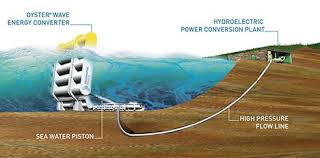Blogs
- What is your vision for a sustainable world?
In my vision, a sustainable world means "meeting the needs of the present without compromising the ability of future generations to meet their own needs" i.e That means cutting only enough trees per year that can be regrown. That means to minimize the burning of fossil fuel, which causes global warming. That means designing energy-efficient buildings, using recycled materials when possible. And it means rethinking our social institutions and the way we conduct our business to be more equitable to all both across the globe and in future generations.
2.What are you planning to do to make this vision a reality?
I am planning to recycle and reuse materials that can be reused, and to encourage my parents and family to also do this. This would help protect our environment from pollution and would contribute less to global warming. Every piece of plastic or trash that can be recycled that goes in the trash will contribute to global pollution, and I can help prevent that by recycling more. Adding on, I can persuade my parents to use solar panels and electric cars more instead of using gas which contributes to global warming.
ii)What I will do to make my vision a reality:

More than 80 percent of the population now resides in urban areas, a number that is projected to continue to increase. Cities and their suburbs account for a proportion of the urban economy far higher than their share of the population. Urban areas have been associated with several environmental and social inequities, such as disproportionate levels of air and water pollution, loss of biodiversity, increased rates of poverty, and high rates of wealth inequity. Despite these problems, urban centers may have the potential to be more sustainable than suburban or rural areas. Through smart land-use planning, they can locally greatly reduce environmental impacts with lower per capita energy and water use.
Oceans comprise 97% of the Earth's water bodies. According to several surveys, around 3 billion people reside within 200 kg of coasts and the numbers keep increasing every day. They can tap ocean energy using the Oscillating Wave Surge More than 80 percent of the population now resides in urban areas, a number that is projected to continue to increase. Cities and their suburbs account for a proportion of the urban economy far higher than their share of the population. Urban areas have been associated with several environmental and social inequities, such as disproportionate levels of air and water pollution, loss of biodiversity, increased rates of poverty, and high rates of wealth inequity. Despite these problems, urban centers may have the potential to be more sustainable than suburban or rural areas. Through smart land-use planning, they can locally greatly reduce environmental impacts with lower per capita energy and water use.
Oceans comprise 97% of the Earth's water bodies. According to several surveys, around 3 billion people reside within 200 kg of coasts and the numbers keep increasing every day. They can tap ocean energy using the Oscillating Wave Surge Converter (OWSC) device. This device extracts energy from the surge motion in the waves. These are generally seabed mounted devices in near-shore sites with the water depth of 10-20m.
3.What impact has colonization had on our journey to a sustainable planet?
Colonization has impacted the journey to a sustainable planet because of what it introduced to the different parts of the world. As people colonized in different areas of the world, they destroyed natural habitats of animals, growing constantly to the point where the animals had nowhere to live. They also drove native people, who did not have an as advanced technology, out using their guns and bombs. As technology and weaponry advanced, people used weapons that destroyed large portions of the environment. And, people are constantly developing new things and consuming more and more natural resources to do so.
Post comment
4 Comment(s)
Great work Mohammed, |Can you share your ideas about how to determine just "enough tree for the year that can be regrown?
Expatiating your idea on OWSC would be a great....:)
Everything starts at home, you are right! I believe that everyone that does so should persuade not only your family but others too. By doing so, all the pollution that has been thrown away at the oceans and come to someones shore will reduce. Also another solution can be to extend the 3Rs to the areas where pollution comes to their shores so they can also help their own home.
I understand the damage colonization has made to the world is much more than the good; but i think it did something positive too. Without colonization we wouldn't be able to understand the planet, meaning in research of the world's biodiversity. Maybe in a near future humans will be able to develop a type of urbanization that is nature friendly, were animals don't have to be taken away from their natural habitat.
Good work


Sandra Ukaigwe
Aug 29, 2017